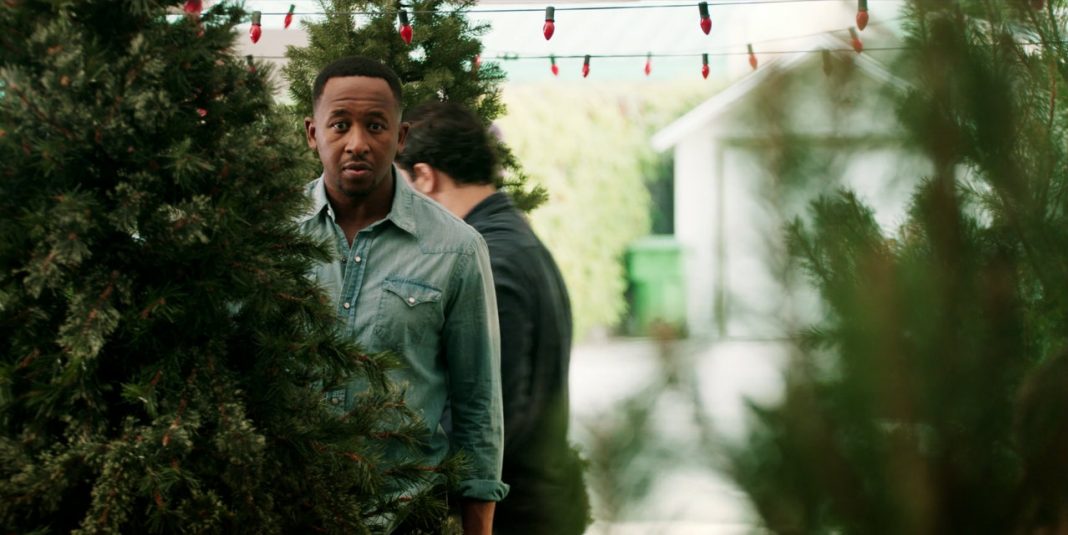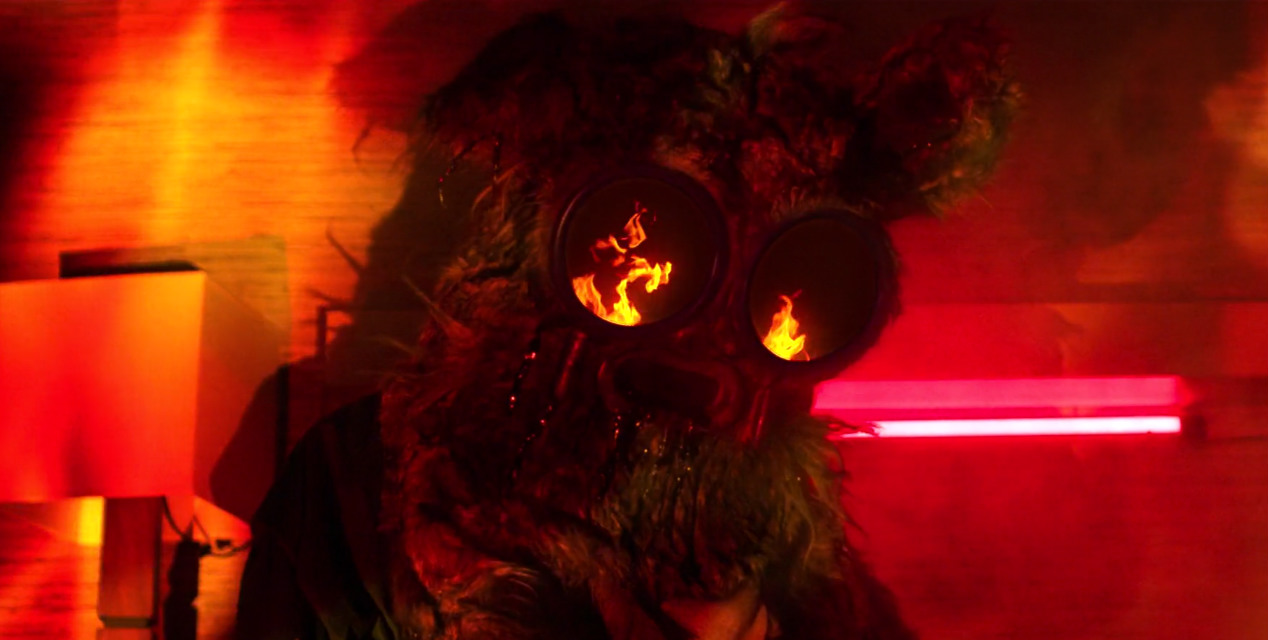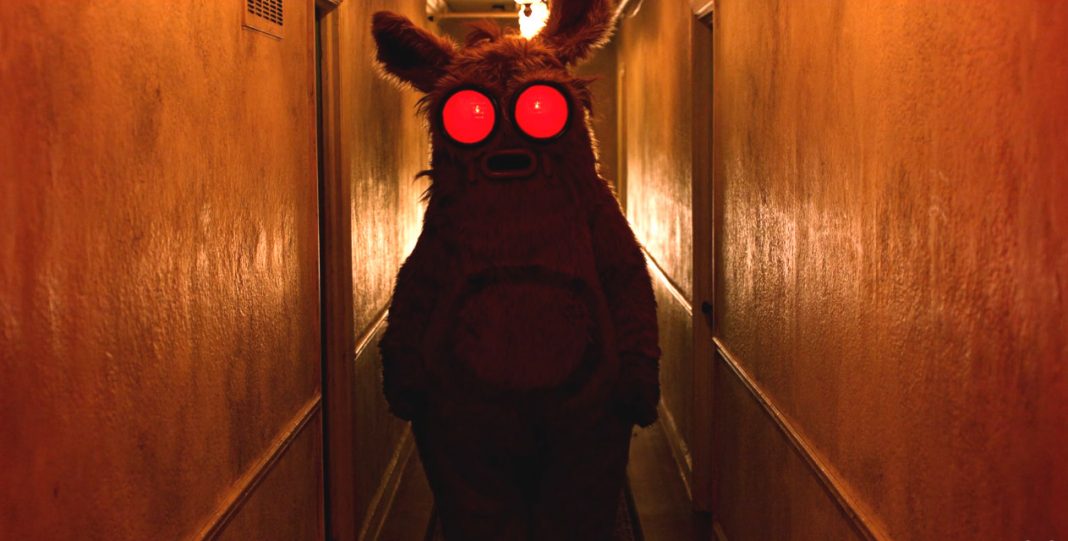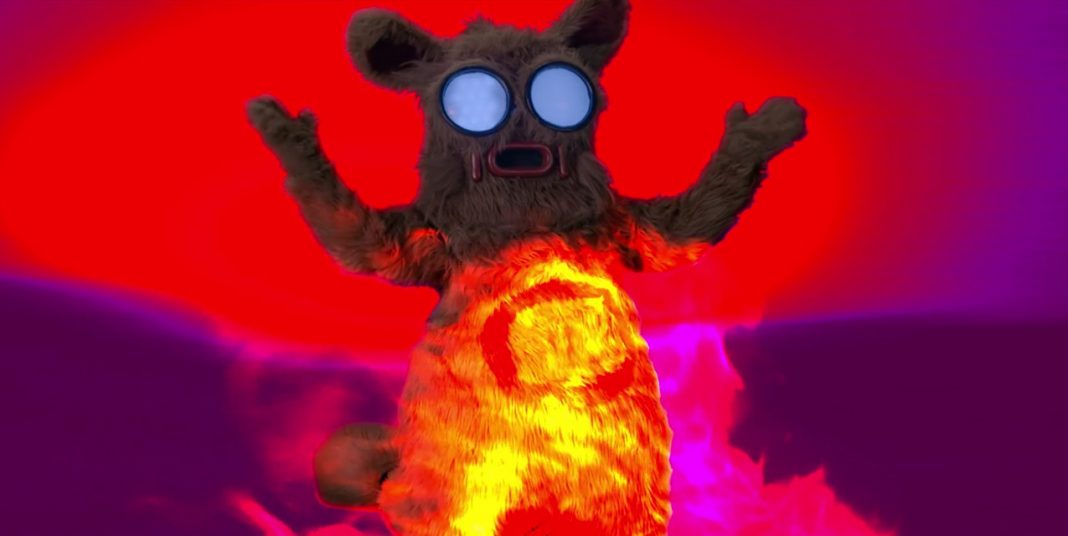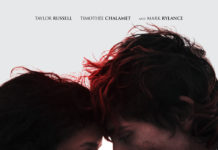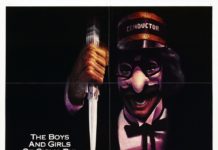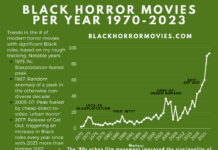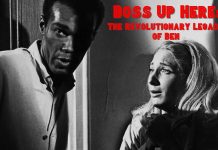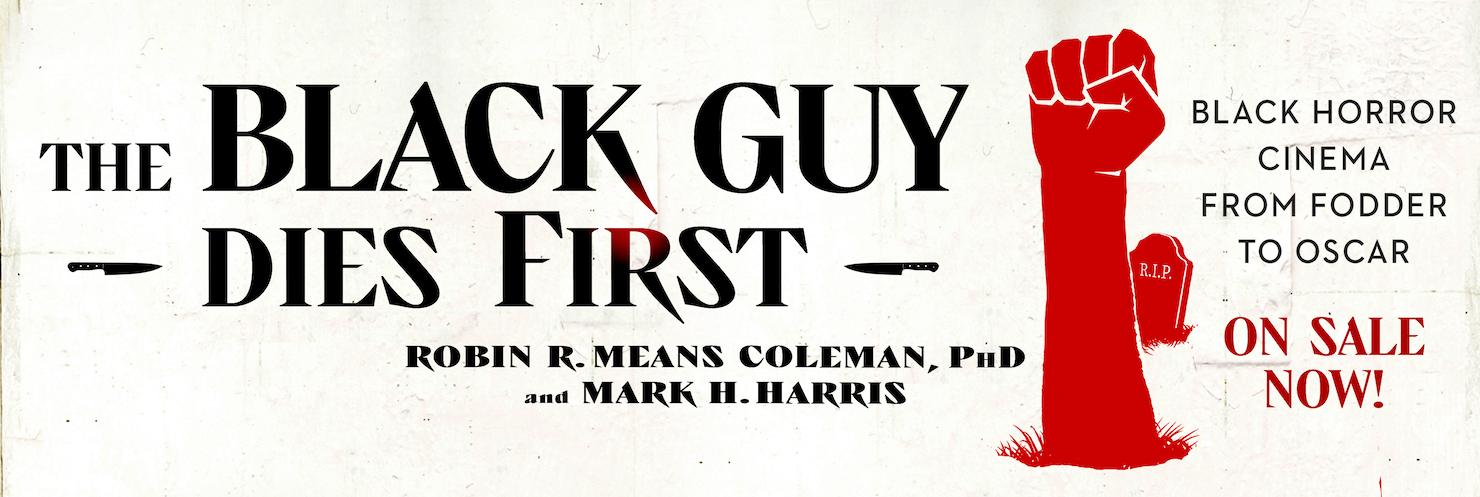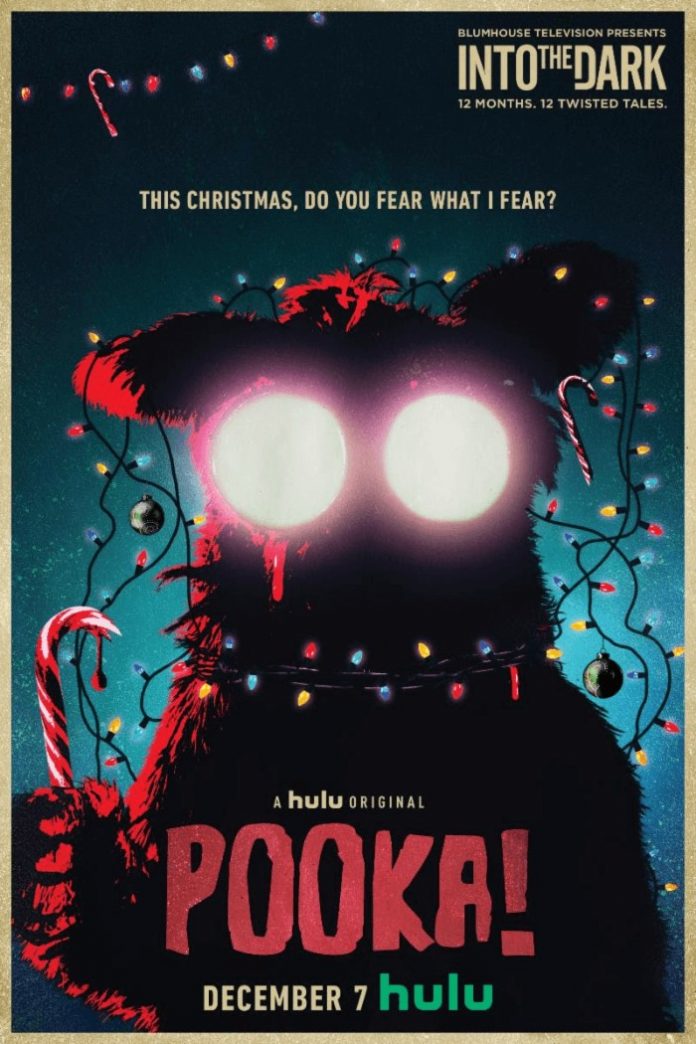If you’ve seen Nacho Vigalondo films like Colossal, Extraterrestrial, Timecrimes and Open Windows, you know he’s not one for conventional genre storytelling. His movies tend toward the unpredictable, either in content or structure — or both — and his latest, Pooka!, is no exception. That said, perhaps the most surprising thing about it is that it’s made for Hulu, the third entry in the streaming service’s yearlong, holiday-themed Into the Dark series of feature-length films. It should go without saying that this is the most challenging of the three so far, but given some patience, it emerges as the best.
The story revolves around Wilson (Nyasha Hatendi), a struggling actor who reluctantly accepts a gig as a life-sized, live-action version of Pooka, the “it” toy of the holiday season. The fuzzy, oversized mascot suit affords him anonymity for a job he wouldn’t want to put on his resume, but he soon finds himself inextricably tied to it. The suit seems to have a mystical power — perhaps even a mind of its own — that turns his mild-mannered nature inside-out, unleashing his violent, lascivious id. Man and suit develop a disturbing symbiotic bond that threatens to destroy not only his life, but that of his girlfriend, Melanie (Latarsha Rose), and her young son.
It would be easy for Pooka! to go down the standard Silent Night, Deadly Night slasher route, with a costume triggering a maniacal killing spree, but that isn’t Vigalondo’s modus operandi. Like Extraterrestrial, which wasn’t really about UFOs, and Colossal, which wasn’t really about giant monsters, Pooka! isn’t really about a killer costume. As with those movies, the genre elements serve as a tool to propel a deeply human story that transcends the supernatural, delving into the frailties of us mere mortals. The end result is a surprisingly affecting tragedy.
Pooka! boasts striking visuals that blend crafty camerawork, playful editing and vibrant colors together with a bold character design that, despite the somber story, adds a level of dark humor. Of course, it’s nowhere as campy as the concept or the titular character would imply; the whimsy just adds to the overall unease viewers feel as they try to make sense of what they’re watching. The horror of this film lies not in traditional spookiness or jump scares but more in the disquieting level of uncertainty it creates and the twisted way it warps wholesome institutions like Christmas, children’s toys and familial ties.
Hatendi is effective as a meek everyman, and it shouldn’t go unnoticed or unpraised that Vigalondo and the folks who cast the movie thought a black actor would be believable in such a role. There’s nothing on paper about Wilson that would identify him as black, so the fact that they chose an African-American man to play against Hollywood’s typical racial typecasting is certainly commendable. And the rich, emotional final product speaks for itself; it has all the makings of a new cult classic.
